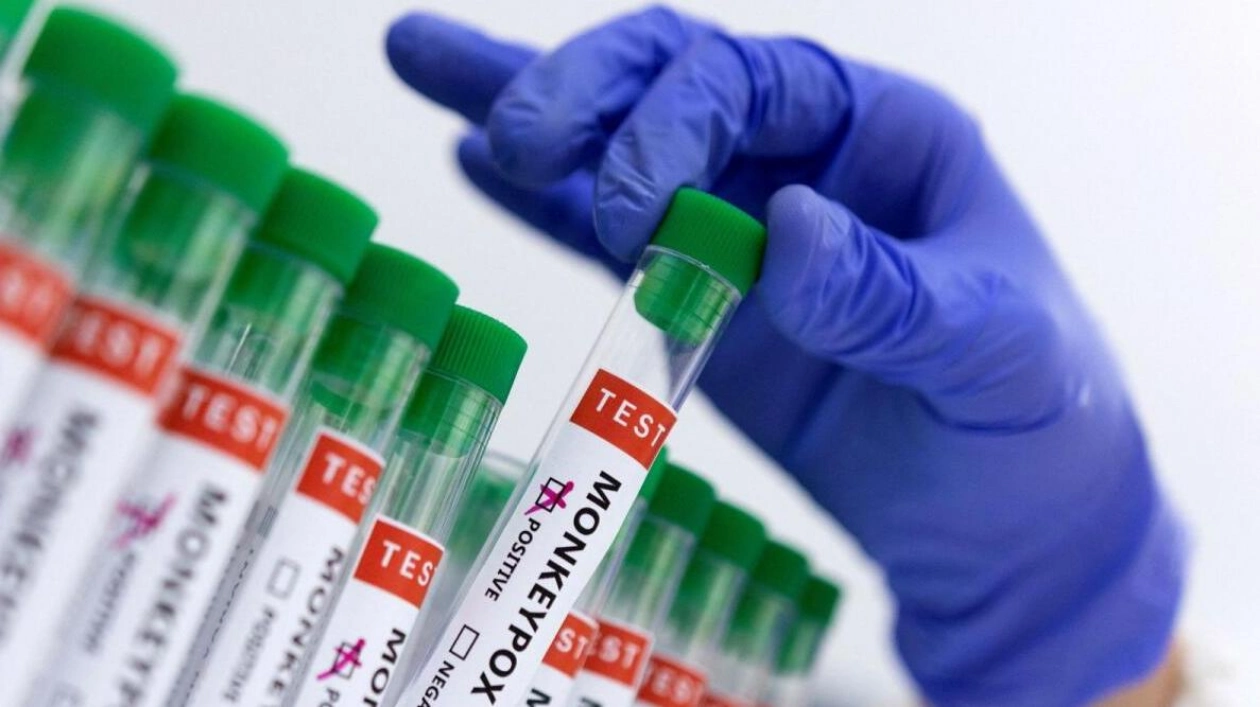The World Health Organisation has declared a global health emergency for the second time in two years due to an outbreak of mpox, a viral infection that spreads through close contact. As cases are now being discovered outside of Africa, where the outbreak originated, global concern is rising because the disease appears to spread more easily through routine close contact. Sweden confirmed its first case of mpox on Thursday, while Pakistan's health ministry reported at least one case in a patient who had returned from a Gulf country, with provincial health authorities detecting three additional cases.
Symptoms of mpox typically manifest within a week of exposure, but can also start 1-21 days later, according to the WHO. These symptoms last 2-4 weeks but may extend longer in individuals with weakened immune systems. Common symptoms include a rash that begins as a flat sore and develops into a blister filled with liquid, which can be itchy or painful, fever, sore throat, headache, muscle aches, back pain, low energy, and swollen lymph nodes.
Mpox transmission occurs through direct contact with infectious skin or lesions, including talking, breathing, touching, and intimacy. Respiratory droplets or short-range aerosols from close contact can also transmit the disease. Additionally, the virus can be contracted from contaminated objects such as clothing or linens, through sharps injuries in healthcare settings, or in community settings like tattoo parlors.
Prevention of mpox infection involves vaccination, which should be administered within 4 days of contact with an infected individual (or within up to 14 days if there are no symptoms). During outbreaks, high-risk groups such as healthcare workers are recommended to get vaccinated first. Several antivirals, including tecovirimat, originally developed for smallpox, have been used to treat mpox, with further studies ongoing.
A 'public health emergency of international concern' is WHO's highest alert level, announced when diseases spread in new or unusual ways, aimed at galvanizing international cooperation and funding to address outbreaks. The current outbreak in Congo, the worst ever, has seen 27,000 cases and over 1,100 deaths since January 2023, primarily among children. The disease causes flu-like symptoms and pus-filled lesions, and while usually mild, it can be fatal. Children, pregnant women, and individuals with weakened immune systems are at higher risk of complications.
Two strains of mpox are currently spreading in Congo: the endemic form and a new variant. This new form has raised global concern due to its rapid spread and limited understanding. It is transmitting through sexual contact and other close contact, such as among children in displacement camps, and has now moved from eastern Congo to Rwanda, Uganda, Burundi, and Kenya. Scientists hope that emergency declarations will accelerate efforts to provide medical tools and funding to Congo to help authorities manage the outbreak. Better surveillance is needed to study the virus and halt its spread.






